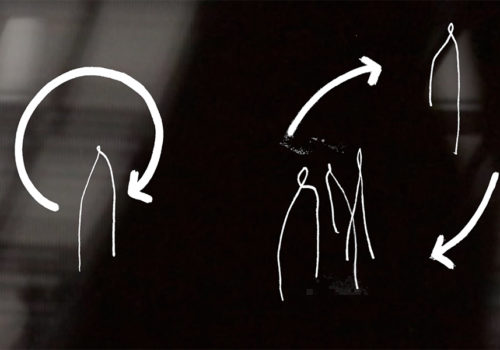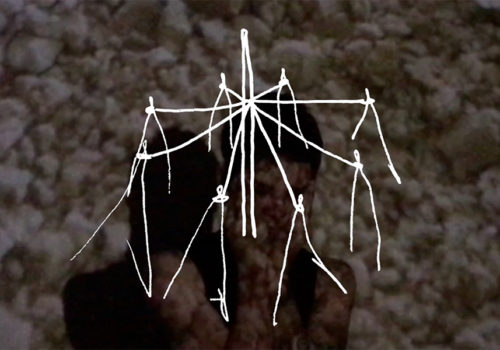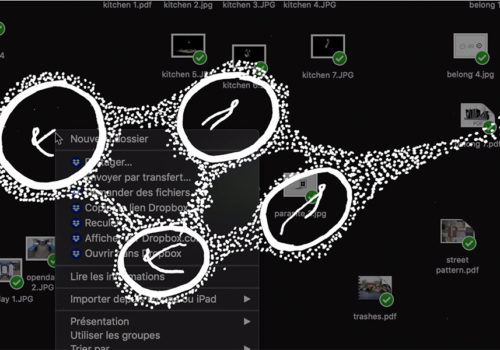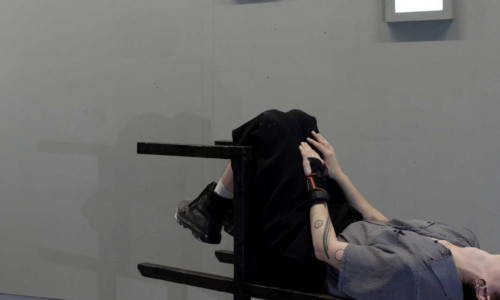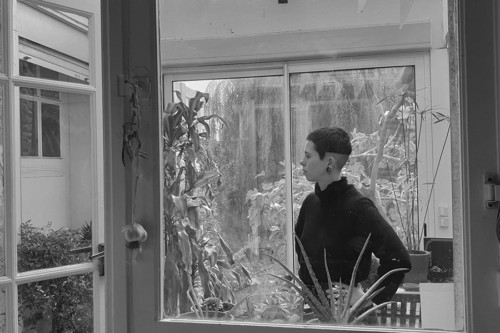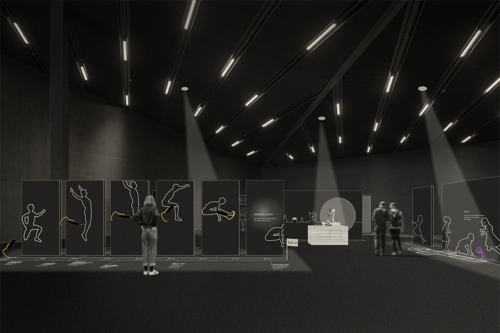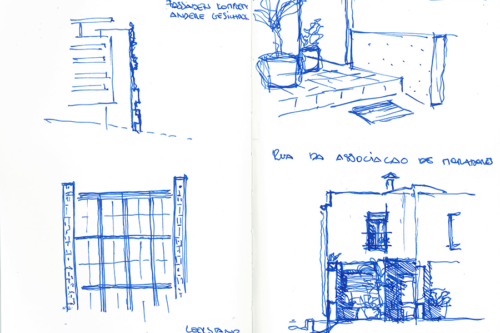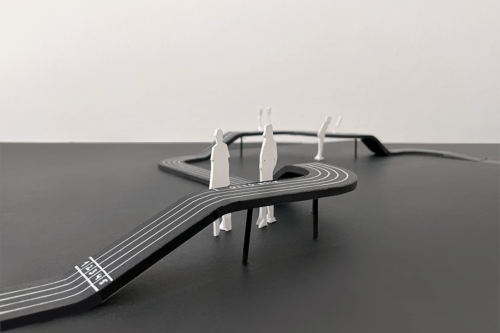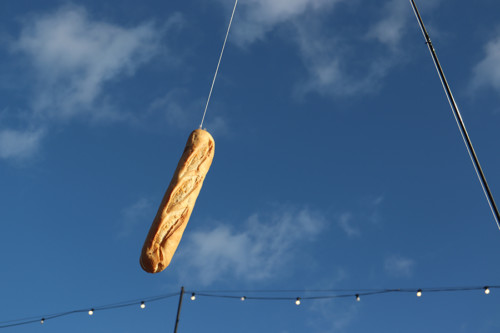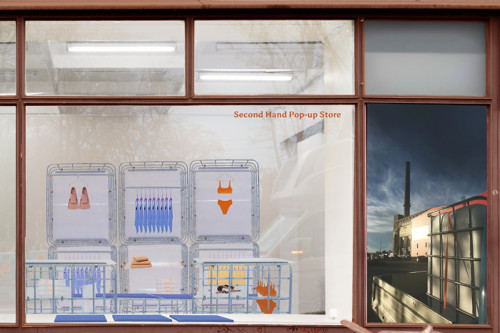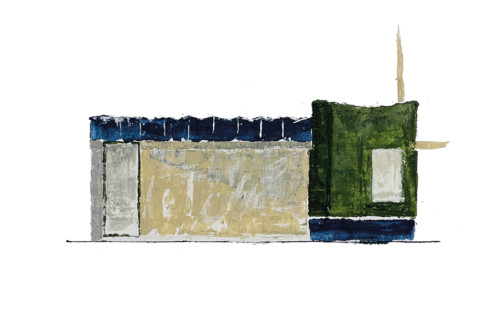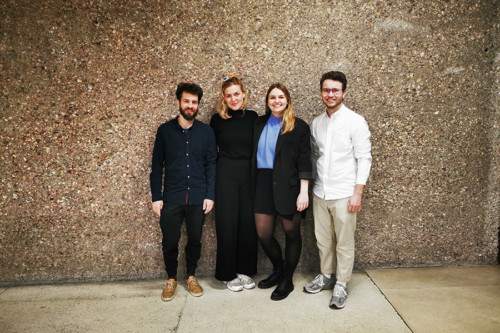How do we sink? – Eff Libilbéhéty, Interior Scholarship 2020/2021
Blog Interior Scholarship
April 2021
Blog: Eff Libilbéhéty
How do we sink?
Humans used to be animals. They now pretend to be machines.
What is the place of humans in futures societies? How does the dynamics between individual and collective will balance? Western populations face difficulties to maintain current humans’ lifestyle. Let’s talk, or dream, about the decline of European capitalists societies. This sensible experience is irremediable: we are all going to face it, whether you like it or not.
Maybe it is just some thoughts of a young adult that has already lost hope before they have even begun to live. Nihilistic? Cynical? A generation that might have everything to feel happy according to society’s standard. But waiting for the collapse of their own society to feel alive again. Thirsty for adventure and to find a lost childhood. This starting point gave an excuse for a conversation between Tania Phuong and Eff Libilbéhéty.
“It’s a story about a guy who falls from a 50 storey building. As he falls he tries to reassure himself by repeating ‘so far, so good, so far, so good, so far, so good’. It’s not the fall that matters, it’s the landing.”
‘Human’ is an aware living organism rushing behind self-accomplishment and instinctive need to belong, while the animal represents the condition where action and reaction are merged. It calls purely to intuition and requires no thinking. Somewhere else in the spectrum rule the machine, with its extreme rationalization of processes. It embodies tools, technologies, and the knowledge to use them.
By transcending their initial condition, humans put in opposition rationalization and primitivity. Our technological progression goes way faster than our biological evolution, and such change redefines how individuals relate to themselves and others. Instinct no longer has a place in a society frantically governed by control. Human, all too human. Fragile but invincible. Consummate, stubborn, temporal. Complex being and yet so simple. Full of surprises.
Imagine a world without you, without us. How hard it is.
We are unable to form a complete mental picture of it. To sense its full impact. No matter how much I have read the data and tried to rationalize it. From a systemic perspective, I can’t vindicate a picture of what ‘the collapse of the world’ might be. No organism endowed of common sense would sign for that. The political paradox of our world: going with the firm intention of reforming the world but never imagining it without us. Merely, there’s a common intuition of it, on the verge of certainty.
How to imagine the consequences of such an event?
Which leader would make a catastrophic analysis of the state of the world and draw a conclusion that how he governs must be radically changed?
This world is cruel. This world is beautiful.
First, it was only matter. Humans try to organize it, and called that society. What is you? What is us? How does that impact the self’s conception when the self is defined by its tools and conventions? How do selves relate to their surroundings when the world is exceptionally technical? Do these technologies and ideas of ‘self’ impact human nature? Is human nature flexible?
What are we going to feel?
I stand for chaos. Ecological and economic data make no sense to me. Most people are too dumb for theory. Life is dissonant anyway. I want to feel. And I want to know what others feel. Should we expect the worst and believe in the myth of barbarity, or can a more united and therefore, less violent narrative be imagined?
This world is guilt-ridden.
As a cataract, the systematic depersonalization of being rhythms one’s perception of their identity and replaces their body awareness with restrictive freedom. It is vertiginous how every banal body action is detained by a strict idea of right and wrong. It shines at the bottom of the tunnel, I hope it’s not an illusion. There’s no fear in my words, but curiosity coming from the misunderstanding of human nature. I tried to tame the collapse of our civilization. As there is no unique version, neither a brutal stop apocalypse-like, how to approach a moment that we know dramatic? How to make sense of something when there is no hope anymore? Is resilience the wiser attitude?
When is it too late?
I recently moved rue de Louvain, very much in front of the Belgian senate. My desk is next to the window, and I observe my neighbour when my soul needs to relax. The three people working there are known as ‘the boss’, ‘the intern’, and ‘the douchbag’. They are most of the time smoking on their balcony, trashing their cigarettes on the street. Often they would go home, leaving the window and the light open all night long. I send paper planes. Most of them end up on the street, smashed by car until I remove them. ‘All is wrong’. Two of my fragile agents succeeded, landing on both sides of the balcony’s window. I see them for three months now, getting less and less tangible, damaged by the rain. An archive of this slow death quickly replaced my victorious scream. Although, I know they see them, as every hour they light a new cigarette there. Which leader would make a catastrophic analysis of the state of the world and draw a conclusion that how he governs must be radically changed?
Humans are social, so their path cannot be resumed only by intrinsic values. When their ability to perceive the world scales up to the collective, it multiplies individuals’ restrictions and allows the structures of power to orchestrate grandiose puppets shows. And the obsessive folly of order enters the dances. What is real when the world is fiercely screenwritten?
The madness of a well-oiled method requires unique but, therefore, mundane reactions. Instruments to hack the global consensus are not fierce, and that is where their strength resides. It is absurd, hazardous, and lyric. Merely then, the individual can call themself I.
Self is plural, but the Corbusier himself said, “all men have the same organism, the same functions. All men have the same needs”. How individuals are supposed to be individuals when identities are social conventions? Architecture is the jailer of this millimetric ballet. It encloses the subjects that live in. Standards. Norms. Technologies. Are we just bad people? Emotions decide. Nevertheless, emotions can’t be predicted, neither can someone else know what is irremediably in our hearts.
What is left ?
The frenetic rhythm of well-rounded simulacras, and designers playing to be God. My body is locked in a mechanical dance, accompanied by other bodies. A desperate call to reunite people. A last try out to make this final adventure fun. As there is no answer, at least we could be together in the incertitude.
Different visions, different spaces, and times.
Humans are ‘technical’ to the point that all these means are accepted as a part of a person. Individuality becomes a commodity. How to approach a moment that we know dramatic?
Where is your sensible experience? I don’t belong. I’m a belonging. Humans look at their planet from space. Global warming? System-thinking. We scream numbers, degrees rise, increase in precipitation! While the main question should be: where are the singing birds?
Collecting, archiving, destroying.
When the individual-to-individual relationship expands to that of the group, institutional violence immerses individual brutality. They are co-dependent. Don’t be scared. Let us all embrace it together. Are we going to cooperate, or will we dive into more individuality?
Forever renew yet forever the same. Reason melts into systematic control.
Selves are political!
Unlike the collapse of ancient civilizations, the scale changed. We live in a globalized world, and yet still creating infinite connections with causal mechanisms that can’t only be isolated to one particular country. We do universal behaviours shaped by data. The society threatened is the whole world. It doesn’t solve inequalities but only uniforms customs in megalopolises. Fitting in the era of capitalism is an endless race, and it is illusory to belong in a world of fast trends. Indeed, it is a constant self-adjustment in one identity. But also a very convenient way to control a crowd. You never can really isolate and run from society. Society always catches up to remind you where you should belong, despite you.
Humans, you got some bad habits. Your control is a never-ending dominance, in a big large world. And I am really pissed because all of this mess started from an impulse to make sense of ‘our’ world. Hierarchizing and organizing what seemed to be chaos. Humans put rationalization on a pedestal, far, far away from primitivity. As if order and chaos were antagonistic. In our unreasoned race for control, humans become weapons of mass self-destruction. Follow with the deterioration of our home, in the idea of a world slowly being eaten from the inside. A human story in which a certain melancholic feeling mixed with reverie and an imprecise desire for happiness can be found.
The world isn’t global thanks to a magical and shared ideology. Standards aren’t anything universal. They are just colonization of the dominant’s perspective for the simple reason that consensus hardly happens without domination. And it is so bad that humans even believe it can only work that way! The word ‘hierarchy’, the ranking of things, has for main synonyms order. But the more surprising are its antonyms. ‘chaos’, ‘anarchy’, ‘mess’. As if the only way to have order is through a hierarchy. In a nutshell, linguistics admits that without domination, there can be no order.
Liar! The more we upgrade our tools, the more we tend to absorb the perspective of the machine. Unaffected. The system-thinking approach brought by the saint order creates dynamics of control, of which we are our own jailer. Scary and peaceful, it is how we are, and it’s how we’re going to end.
What is measured gets managed!
Perhaps it would be better to let instinct decomposed our selves into chaos, to be reborn. Such surrender lies in banal actions such as oversleeping or taking your life’s decisions by playing dice.
Disobedience is about integrating a ‘new logic’ that doesn’t have control or order as an output. A kind of experience that calls purely to hazard while being intensely mechanical.
Please take a minute to grief your specie. What would be your last words?
Maybe the fall won’t be too bad.
I stand for an uncomfortable design that has no fucking sense.
Self is plural. Hack the fixed shape!
To what extent can we expect a group of six billion people to act in one and the same direction, to preserve their environment, to preserve their own? Micro-symbiosis will come from macro-chaos.
Selves are political. Fuck harmony!
There’s no fear in my words, but curiosity coming from the misunderstanding of human nature. Imagination is my only power facing the certainty of an imminent end. Yet, birth only happens by the collapse of an initial state.






